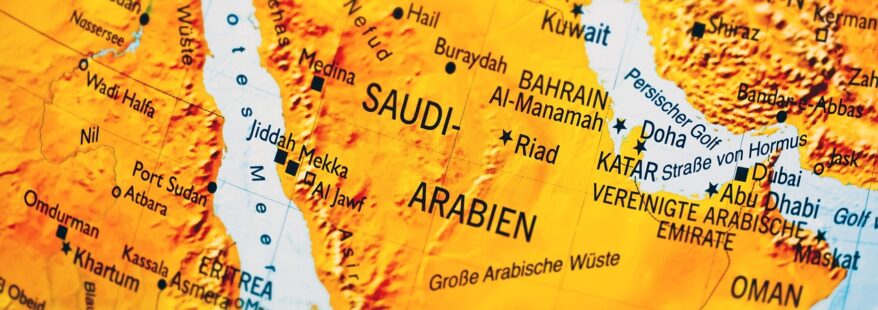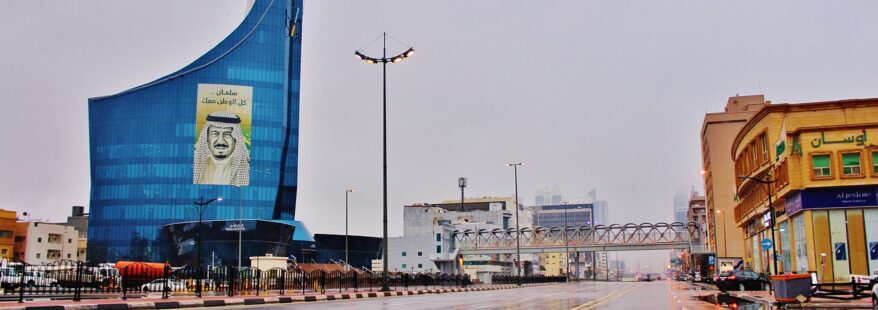In the digital era, Information Technology (IT) has become the backbone of virtually every industry, transforming the way businesses operate and individuals interact. Saudi Arabia, with its vision for a diversified and technologically advanced economy, presents a landscape of burgeoning IT job opportunities. In this blog, we’ll explore the exciting and dynamic world of Information Technology careers in the Kingdom of Saudi Arabia (KSA).
I. The Kingdom’s Embrace of Technology
Saudi Arabia’s Vision 2030, a strategic framework for the nation’s economic and developmental goals, places a significant emphasis on technological advancement. This vision aims to diversify the economy and reduce its reliance on oil, making technology a central pillar for achieving sustainable growth.
The country has invested heavily in building a robust digital infrastructure, fostering an environment conducive to technological innovation. Initiatives such as the National Transformation Program and the Saudi Data and Artificial Intelligence Authority (SDAIA) have been instrumental in driving the digital transformation agenda.
II. High-Demand IT Jobs in Saudi Arabia
As businesses increasingly rely on custom software solutions, the demand for skilled software developers is soaring. Whether it’s web development, mobile applications, or enterprise software, talented developers are at the forefront of transforming ideas into functional, user-friendly solutions.
With the escalating threat landscape, cybersecurity has become a paramount concern for businesses and government entities. Cybersecurity experts are in high demand to safeguard digital assets, protect sensitive information, and ensure the resilience of critical systems.
In the era of big data, the role of data scientists has become pivotal. Organizations in KSA are leveraging data analytics to gain actionable insights, driving informed decision-making. Data scientists proficient in machine learning and predictive analytics are particularly sought after.
III. Opportunities in Emerging Technologies
The Kingdom is actively exploring the potential of AI and ML across various sectors. AI specialists and ML engineers are in demand to develop and implement intelligent solutions that enhance efficiency and productivity.
With the adoption of cloud technologies on the rise, there is a growing need for professionals skilled in cloud computing. Cloud architects, engineers, and administrators are instrumental in deploying and managing cloud infrastructure.
Blockchain technology is gaining traction, especially in sectors like finance and logistics. Blockchain developers are sought after to create secure and transparent systems that leverage decentralized ledgers.
IV. Skill Sets in High Demand
Proficiency in programming languages such as Java, Python, JavaScript, and C# is highly valued. These languages are the building blocks for developing diverse software applications.
Certifications such as Certified Information Systems Security Professional (CISSP) and Certified Ethical Hacker (CEH) are in demand, showcasing expertise in securing digital environments.
Skills in data analytics tools like SQL, R, and Python for data manipulation and visualization are crucial for data scientists and analysts.
V. The Role of Education and Continuous Learning
Many IT roles require a strong educational foundation in computer science, information technology, or a related field. Bachelor’s and advanced degrees provide the necessary theoretical knowledge.
Given the rapid pace of technological evolution, professionals in KSA’s IT sector benefit from continuous learning and certifications. Online courses, workshops, and certifications help individuals stay updated with the latest industry trends.
VI. Conclusion
Saudi Arabia’s commitment to technological advancement positions the IT sector as a thriving hub of opportunities. Whether you’re a seasoned professional or a budding enthusiast, the Kingdom’s IT landscape offers a spectrum of roles catering to diverse skill sets. As technology continues to shape the future, those in pursuit of meaningful and impactful careers need look no further than the evolving world of Information Technology in Saudi Arabia.
FAQs
- Are IT jobs in Saudi Arabia open to expatriates, or is there a preference for Saudi nationals?
IT jobs in Saudi Arabia are open to both Saudi nationals and expatriates, depending on the specific requirements of employers.
- What role do IT professionals play in the implementation of Vision 2030?
IT professionals are instrumental in implementing Vision 2030 by contributing to the digital transformation of various sectors, enhancing efficiency, and fostering innovation.
- Are there opportunities for freelance IT professionals in Saudi Arabia?
Yes, there are opportunities for freelance IT professionals, especially in areas such as software development, cybersecurity consulting, and data analytics.
- How important is proficiency in English for IT professionals in Saudi Arabia?
Proficiency in English is generally important for IT professionals in Saudi Arabia, as it is a widely used language in the business and technology sectors.
- What steps can aspiring IT professionals take to enhance their career prospects in Saudi Arabia?
Aspiring IT professionals can enhance their prospects by acquiring relevant certifications, staying updated with industry trends, and gaining practical experience through internships or personal projects.










